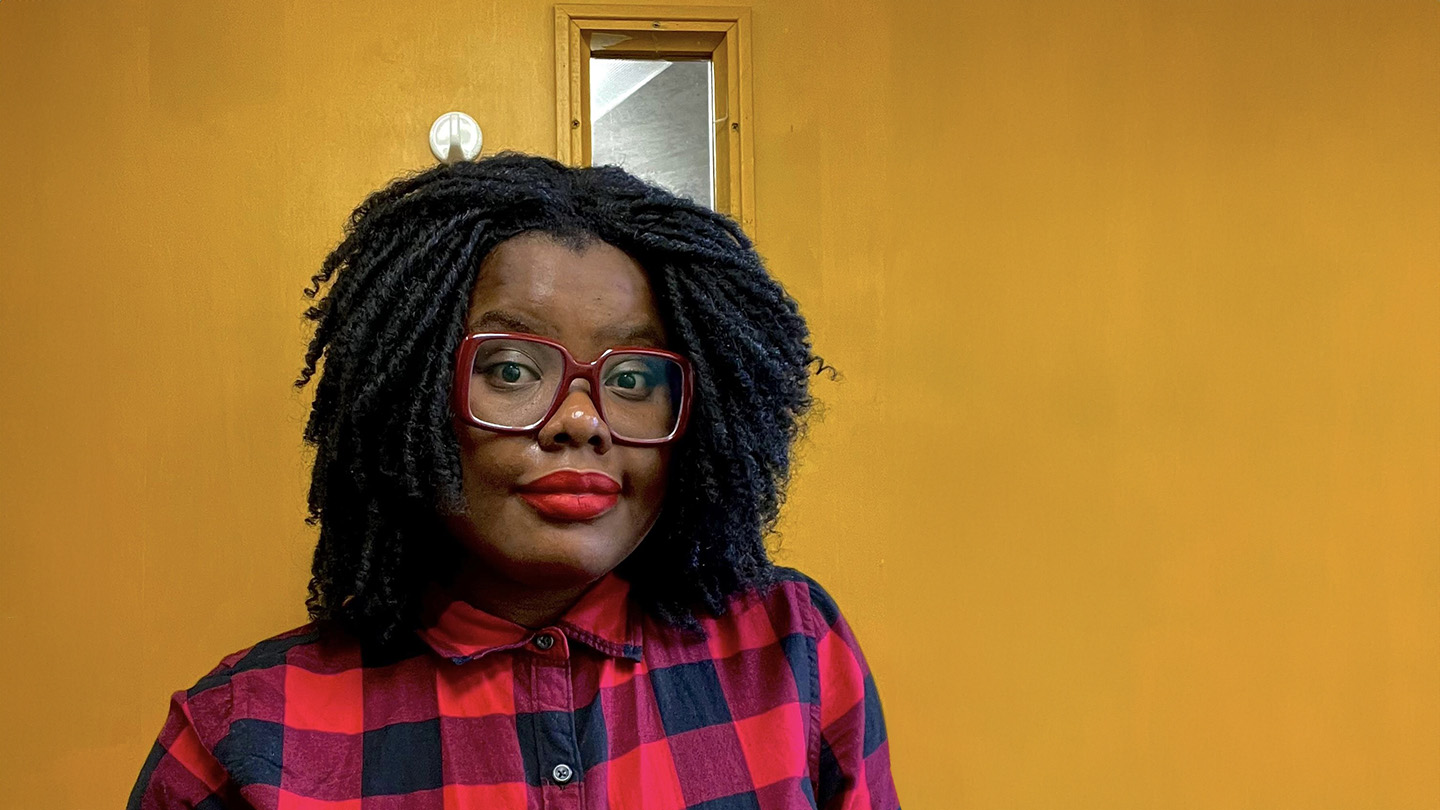Countering Terrorism: OISE doctoral candidate earns international grant to boost literacy programming in Nigeria

For doctoral student Jennifer Chinenye Emelife, November marks the launch of a project that will deliver crucial educational opportunities to regions of Nigeria that have long struggled with the impacts of terrorism.
With the support of an Academic Enrichment grant from the U.S.-based McCarthey Dressman Education Foundation, Emelife has designed a new curriculum initiative titled “Literacy Amidst Violent Conflict in Northern Nigeria.” This project aims to equip students and teachers there with critical literacy skills that will help them challenge and act upon the injustices in their communities – in this case, against ethnoreligious violence and Boko Haram, insurgents known for kidnapping and subjugating schoolchildren.
“There's a lot of banditry, attacks happening, and tribal violence going on, and some of the kids are orphaned,” says Emelife, who studies critical literacy education for youth with histories of violent conflict and displacement. “Some of their parents have been injured or work as security guards and things like that. This is an opportunity for the kids to experience a critical form of education that is both empowering and transformative. That's how the ideas for the literacy program were formed.”
By winning this crucial internationally competitive grant, Emelife is now able to collaborate directly with local educators and children, conducting teacher training and introducing new learning opportunities.
“My goal is to design a critical literacy program that helps young people reflect on their own experiences. I want them to ask themselves, ‘What is happening around us? How do we understand the learning situation? If given the chance, what can we do to bring about change?’” she says.
“I'm working with teachers because I'm hoping that, beyond impacting this selected group of students, these teachers will carry on this kind of critical pedagogy and reflexivity into their own practices.”
Professor Rob Simon, who has worked closely with Emelife since 2021 as part of his Addressing Injustices project, believes her work will have a transformative impact on students in Nigeria.
“Jennifer believes deeply in her students’ creativity and critical perspectives and, as I have witnessed in our work together, she positions herself to learn from their life experiences and life struggles,” he says. “To say that Jennifer's project will inform the field is to understate its importance. At a moment of profound instability, lives are at stake.
“Millions of displaced children in Nigeria and elsewhere will benefit from Jennifer’s teaching and research.”
Emelife has extensive experience in literacy education, having taught at both the elementary and secondary levels in Nigeria and the United Kingdom. She also founded Teach for Change Nigeria, a curriculum initiative aimed at addressing the challenges of teaching literacture in Nigerian secondary schools. TFCN’s goal is to inspire critical literacy education and encourage advocacy through diverse literacy practice in Nigeria.
Emelife’s doctoral supervisor, Professor Kathy Bickmore, praises Emelife for her scholarly approach and dedication, saying that she has distinguished herself as a scholar-educator.
Emelife’s work foregrounds critical-creative literature and literacy teaching that encourages self-expression and democratic peacebuilding capability among youth who have been displaced by violence in Nigeria, Bickmore says.
“She addresses these young people respectfully as valued knowledge holders,” she adds. “This tremendously important work holds promise to enhance young people’s opportunities and capabilities to participate in positive social change, while also enhancing their individual human security.”
Professor Simon praises Emelife’s commitment to the learning and wellbeing of the most vulnerable students in her home country. “I am continually impressed by Jennifer's abilities as a scholar and teacher. She quickly builds meaningful connections with students, who always appreciate her warmth, her openness to learn with them, and her critical perspectives on the world.”
Emelife’s personal connection to her work is deeply rooted in her own experiences growing up near Kaduna, a region in Nigeria affected by the insurgency. “I've had experiences where we're learning in school one minute and then the next running because of the threat of an impending attack,” she recalls. “We were so close to where the violence was happening, and there was always that fear as a Christian and as an Igbo person.”
As both a Nigerian and an educator, Emelife is determined to challenge the deficit representation of refugees and displaced persons in the world, particularly those in the Global South.
“Just because a person is seemingly poor or lacks basic amenities, it doesn't mean they have nothing to have to offer intellectually or creatively,” she says, “I think it's about creating opportunities and showing what's possible.
“With this grant, I'm hoping that I'm able to provide a little example of what it might look like to reimagine literacy education in extremely volatile contexts. Let's look at what students can do instead of what they can’t.”